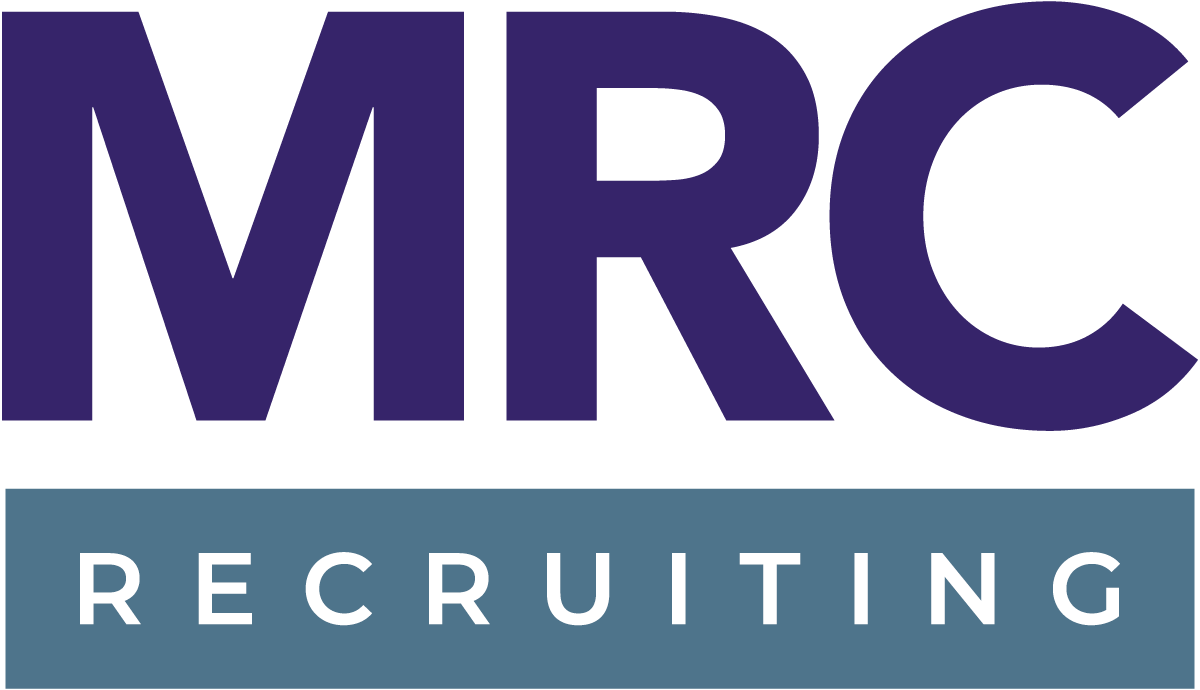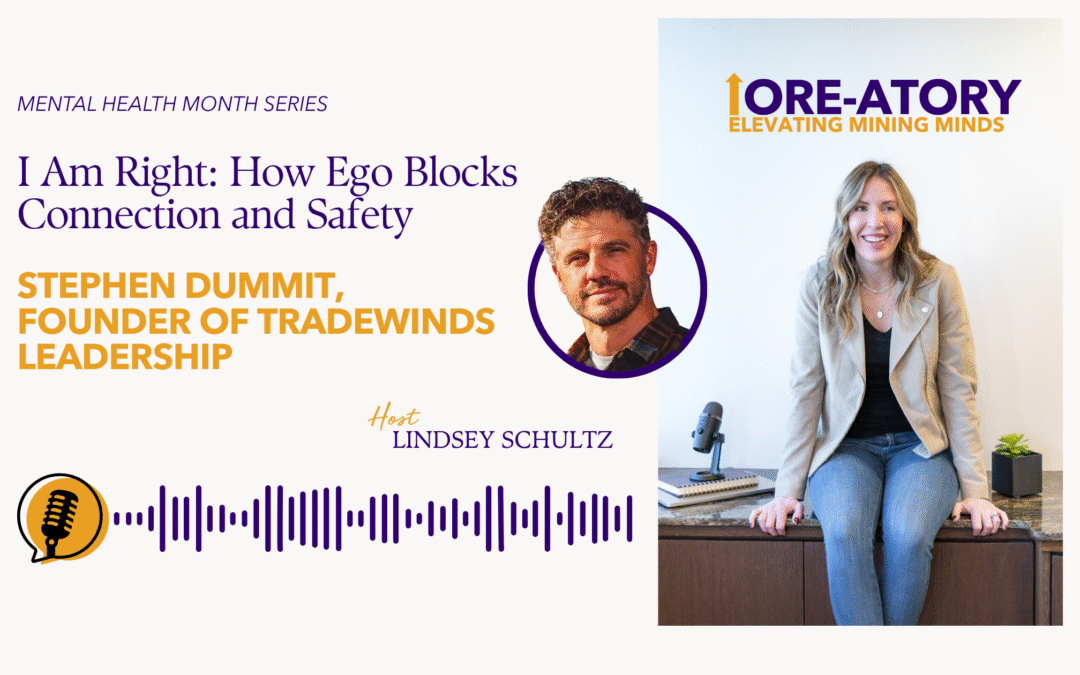In this compelling close to Ore-atory’s “Talk is Tough” mental health series, host Lindsey Schultz sits down with Stephen Dummit of Tradewinds Leadership to tackle the final stigma lie: “I am right.” This episode pulls back the curtain on how ego, when left unchecked, becomes a silent saboteur of communication, creativity, and psychological safety—especially on mining and construction teams.
Stephen opens the conversation with the simple but powerful distinction: being right doesn’t always mean being correct. The pair dive into how sticking to familiar ways of doing things—“because that’s how we’ve always done it”—prevents teams from adapting, innovating, or fully engaging every team member. Lindsey relates this directly to industry practices, where hierarchy and tradition can unintentionally block smarter, safer solutions.
The discussion shifts into leadership behaviors, particularly the courage it takes to admit you’re wrong. Lindsey shares a personal story of a senior leader whose humility in owning mistakes fostered a team culture of trust, growth, and emotional safety. Stephen reinforces that such vulnerability is not weakness—it’s strength that invites connection and creates space for others to contribute fully.
Throughout the episode, listeners are introduced to the importance of curiosity as a counterweight to ego. By asking more questions and holding off on quick judgment, leaders and team members alike can better understand one another and make more informed decisions. Curiosity fosters openness; ego shuts it down.
The episode also explores how seemingly small actions—asking someone how they’re really doing, inviting input from a quieter team member, or simply sitting among your crew instead of in front of them—can send powerful messages of inclusion and respect. Stephen illustrates this with stories from job sites and safety stand-downs, reinforcing that leadership is more about presence and behavior than position.
Lindsey and Stephen emphasize that creating team magic doesn’t require sweeping organizational overhauls. Instead, it’s about equipping teams with simple tools—like the four “stigma lies” from the series—and giving them a common language to understand each other better. These small shifts can have a big ripple effect across departments and companies.
They close the episode with a powerful reminder: You don’t have to be in charge to influence culture. Every team member has the power to create change, starting with how they communicate and how they show up for each other. Whether you lead a crew of five or fifteen, the tools shared in this series can help you build a safer, more connected, and higher-performing team.
🔑 Key Takeaways:
-
Being right isn’t the same as being correct—and ego often gets in the way.
-
Leaders who admit fault foster stronger, safer team dynamics.
- Psychological safety starts with inclusion, respect, and humility.
-
Everyone has the power to influence their team culture—no title required.
Meet Our Speakers
👤 Lindsey Schultz, our host and CEO of MRC Recruiting, brings expertise in leadership and team development within the mining and related industries.
🎙️ Stephen Dummitt, guest speaker, founder, and leadership consultant at Tradewinds Leadership, shares his deep knowledge in workforce mentorship and mental health awareness in mining.
⏱️ TIMESTAMPS: ⏱️
[00:02] Lindsey welcomes listeners to the final Talk is Tough episode on mental health and introduces the stigma lie: “I am right.”
[01:40] Stephen explains how “being right” blocks trust, creativity, and team connection.
[03:15] Lindsey connects the topic to mining—how tradition can limit innovation.
[04:32] Stephen breaks down the “thinkers vs. doers” myth and how blended roles build better teams.
[06:46] Discussion on the difference between being right vs. being correct—and how ego disguises fear of being wrong.
[08:00] Lindsey shares a story about a leader who admitted mistakes and empowered the whole team.
[12:23] Stephen explores how humility creates psychological safety and deep team loyalty.
[17:37] Tools to combat ego: extend curiosity before judgment.
[19:25] How the best leaders make you feel—and why feelings shape culture more than words.
[22:45] The “F-word” nobody wants to say: feelings—and why they matter in hard-hat spaces.
[24:36] The role of humility, curiosity, and connection in mental health and team performance.
[29:47] Leadership under pressure: how your team watches and models your behavior.
[32:30] Challenger safety: letting others test your ideas to get better results.
[34:13] Building teams with cognitive diversity and creative tension.
[36:25] The value of practical, simple language (like stigma lies) to change team culture.
[42:00] The SEAL boat crew story: how one great leader can change a whole team.
[47:35] Story about Lindsey’s son and the 3 stages of learning—parenting meets leadership.
[51:32] Lindsey shares a story of inclusion at a mining conference lunch.
[54:31] Stephen’s keynote at a safety stand-down: choosing to sit with the crew to model inclusion.
[57:10] Final reflection: every person has the power to change team culture—start with communication.
Connect with us on LinkedIn and check out monthly episodes of Ore-atory: Elevating Mining Minds on Apple Podcast or Spotify, where we continue to explore the mining industry workspace.
Tune in and be part of the conversation that’s shaping the future of mining!
Are you a job seeker looking for your next opportunity or an organization looking to hire your next team member? If you have time for a quick chat about your goals MRC can help connect with us.

